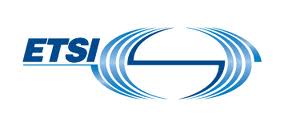CEN-CENELEC-ETSI Activities
This page focuses on activities related to privacy carried out in the European Standardisation Organisations (ESOs)
CEN-CENELEC JWG8 on Privacy Management of Security Products and Related Services
| Context |
The European commission has issued in early 2015 a mandate to European Standardisation Organisations (or ESOs), CEN, CENELEC, ETSI) to work on a roadmap of standards covering the privacy management of security products and related services Consequently, CEN/CENELEC has decided to launch a joint working group JWG8, the secretariat of which will be managed by AFNOR (France). The objective is to define a roadmap and work plan for October 2015 |
| URL |
Mandate page: http://ec.europa.eu/growth/tools-databases/mandates/index.cfm?fuseaction=search.detail&id=548 JWG8 page: http://www.cencenelec.eu/standards/Sectors/DefenceSecurityPrivacy/Privacy/Pages/default.aspx |
| Events |
|
| Members of JWG8 |
Working group structure
Editing team
|
| Comments |
[Antonio Kung]
|
CEN/TC225 - AIDC technologies
As stated in Wikipedia : Automatic identification and data capture (AIDC) refers to the methods of automatically identifying objects, collecting data about them, and entering that data directly into computer systems (i.e. without human involvement). Technologies typically considered as part of AIDC include bar codes, Radio Frequency Identification (RFID), biometrics, magnetic stripes, Optical Character Recognition (OCR), smart cards, and voice recognition. AIDC is also commonly referred to as “Automatic Identification,” “Auto-ID,” and "Automatic Data Capture."
Data Protection, Privacy and Information Aspects of RFID
| Context |
In December 2008, the European Commission addressed the Mandate M/436 to CEN, CENELEC and ETSI in the field of ICT as applied to RFID systems. The Mandate M/436 was accepted by the ESOs in the first months of 2009. The Mandate addresses the data protection, privacy and information aspects of RFID, and is being executed in two phases. Phase 1, completed in May 2011, identified the work needed to produce a complete framework of future RFID standards. The Phase 1 results are contained in the ETSI Technical Report (http://www.etsi.org/deliver/etsi_tr/187000_187099/187020/01.01.01_60/tr_187020v010101p.pdf), which was published in May 2011. Phase 2 is concerned with the execution of the standardisation work programme identified in the first phase. This second phase ended in July 2014 with the publication of different technical reports and the publication of two European standards:
Here is a powerpoint presentation of TC225 : http://docbox.etsi.org/Workshop/2013/201301_SECURITYWORKSHOP/03_CENCENELEC_Standardization/CEN_TC225_M436_DESSENNE.pdf |
| URL |
Mandate page: http://ec.europa.eu/growth/tools-databases/mandates/index.cfm?fuseaction=search.detail&id=415 CEN/TC225 page: http://standards.cen.eu/dyn/www/f?p=204:7:0::::FSP_LANG_ID,FSP_ORG_ID:25,6206&cs=1655B872A8BB9229C9ABA80AB8819C24A#1 |
| Members of CEN/TC225 |
A dedicated Project Team has been appointed to draft the EN 16571 on PIA for RFID applications
Editing team
|
| Comments |
|
ETSI TC Cyber
| Context |
The Internet has become a critical infrastructure for both businesses and individual users. Growing dependence on networked digital systems has brought with it an increase in both the variety and quantity of cyber-threats. The different methods governing secure transactions in the various Member States of the European Union sometimes make it difficult to assess the respective risks and to ensure adequate security. Building on our world-leading expertise in the security of Information and Communications Technologies (ICT), we set up a new Cyber Security committee (TC CYBER) in 2014 to meet the growing demand for standards to protect the Internet and the communications and business it carries. |
| URL | https://portal.etsi.org/TBSiteMap/CYBER/CyberToR.aspx |
| Comments |
|
ETSI Cloud Standards Coordination final report v.1.0
| Context |
The overall objective of the Cloud Standards Coordination initiative led by ETSI is to identify a detailed map of the standards required to support a series of policy objectives defined by the European Commission, in particular in critical areas such as security, interoperability, data portability and reversibility. (http://eur-lex.europa.eu/LexUriServ/LexUriServ.do?uri=COM:2012:0529:FIN:EN:PDF) |
| URL | http://www.etsi.org/images/files/Events/2013/2013_CSC_Delivery_WS/CSC-Final_report-013-CSC_Final_report_v1_0_PDF_format-.PDF |
| Comments |
[Irene Kamara] The report includes the collection and classification of over 100 cloud computing Use Cases, many of which have a personal data protection focus (e.g. UC SD 3.3.3. Processing Sensitive Data) |

